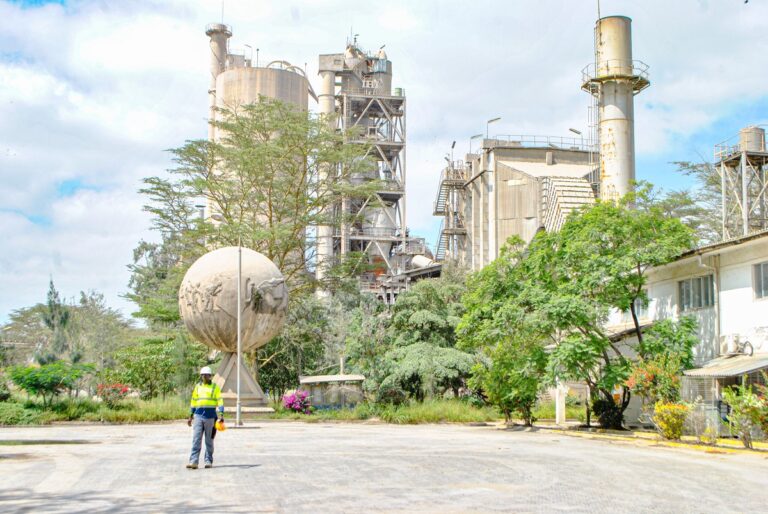The Competition Authority of Kenya (CAK) has ruled that Kalahari Cement Limited’s planned acquisition of a 41.7% stake in East African Portland Cement Company (EAPCC) does not amount to a merger under Kenyan competition law, determining that the transaction will not result in a change of control or raise monopolistic concerns in the cement sector.
In an advisory opinion issued to Kalahari Cement on 13 August 2025, the Authority stated that the acquisition, expected to be completed by 31 July 2025 under the share purchase agreement, will not confer direct or indirect control to businessman Edhah Abdallah Munif, who ultimately controls both Bamburi Cement and Kalahari Cement. The Authority found that the shares in question do not grant any veto or controlling rights capable of influencing EAPCC’s strategic decisions, board appointments, or market conduct.
According to the Authority, control is defined under the Competition Act as the ability to influence or determine the business decisions of another undertaking, either through majority voting rights, ownership of more than 50% of shares, or powers to veto key strategic decisions. Since the acquisition involves a minority shareholding and no voting or veto rights, the CAK concluded that the transaction “will not result in the acquisition of control directly or indirectly” by Mr. Munif.
Consequently, the Authority ruled that the transaction “does not amount to a merger” and therefore does not require notification under Section 43 of the Competition Act. The Authority also found no evidence of potential dominance, consolidation of market power, or anticompetitive behaviour resulting from the acquisition.
In its assessment, the CAK emphasised that the ruling is consistent with its mandate to promote fair competition and prevent the creation of monopolies or dominance in key sectors. The Authority noted that in this case, “no party is expected to gain dominant control over the sale of shares,” ensuring continued market fairness and investor confidence.
However, the Authority clarified that while the proposed transaction does not trigger merger notification requirements, it will continue to monitor the cement market for potential cartel-like behaviour, price coordination, or exploitative conduct.
The Authority revealed that it is conducting a comprehensive market study in the cement industry, expected to conclude by October 2025. The study aims to assess the structure, pricing, and competitive dynamics of Kenya cement market, examining production capacity, market concentration, and the efficiency of public interest tests.
The investigation will also explore whether there is evidence of cartel behaviour or coordinated practices among major cement producers that could disadvantage small and medium-sized enterprises (SMEs) and consumers. The Authority said it seeks to “understand contractual practices between manufacturers and distributors” and determine whether any exploitative conduct exists within the supply chain.
Kenya’s cement industry has recently faced multiple challenges, including declining demand, high production costs, and price competition from imported cement. According to the Economic Survey 2024, cement production dropped from 9.7 million tonnes in 2022 to 9.1 million tonnes in 2023, while consumption also declined, signalling potential overcapacity and weak demand growth.
Although the Authority found no merger in this instance, it reiterated its statutory duty to safeguard public interest by preventing monopolistic tendencies and ensuring equitable access to markets. It also highlighted the importance of balancing investment growth with competitive fairness.
The CAK’s ruling comes at a time when the cement industry remains highly concentrated, with a few dominant players including Bamburi Cement, Mombasa Cement, and National Cement controlling significant Kenya cement market share. Smaller firms continue to face competitive pressures arising from pricing strategies, distribution networks, and access to raw materials.
In this context, the Authority underscored the need for continued regulatory vigilance to promote innovation, efficiency, and investment in the sector. The regulator reaffirmed its mandate under Section 3 of the Act to “enhance the welfare of the people of Kenya by promoting and protecting effective competition in markets and preventing unfair and misleading market conduct.”
The Authority also benchmarked its assessment against international best practices, citing merger control frameworks by the US Department of Justice (DoJ) and the European Commission (DG Competition). In both jurisdictions, competition regulators assess whether a transaction substantially lessens competition or tends to create a monopoly.
In the US, the Clayton Act prohibits acquisitions that may reduce competition, while the European Union operates under a “suspensory” merger regime that prevents transactions from proceeding before regulatory approval. These frameworks, the Authority noted, guide the prevention of dominance and encourage fair competition in global markets.
In conclusion, the Competition Authority affirmed that Kalahari Cement’s acquisition of EAPCC shares does not constitute a merger and does not pose risks of market dominance or monopolisation. However, it will maintain oversight of the cement industry to ensure compliance with competition laws and foster a level playing field for all participants in Kenya cement market.
Do you have any story or press releases you want to share? Send tips to editor@envestreetfinancial.com
Follow us on Twitter, Facebook, or LinkedIn to ensure you don’t miss out on any

